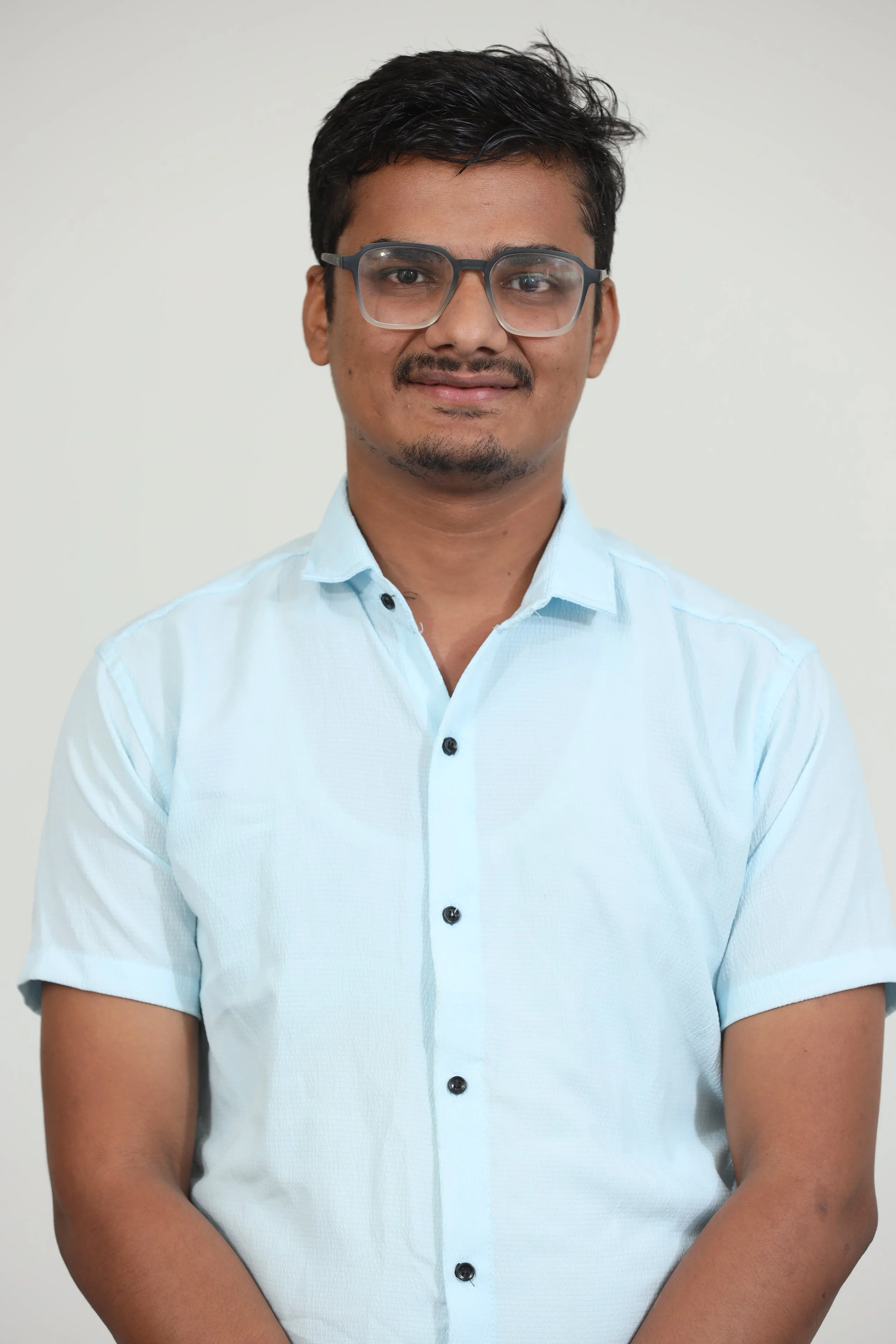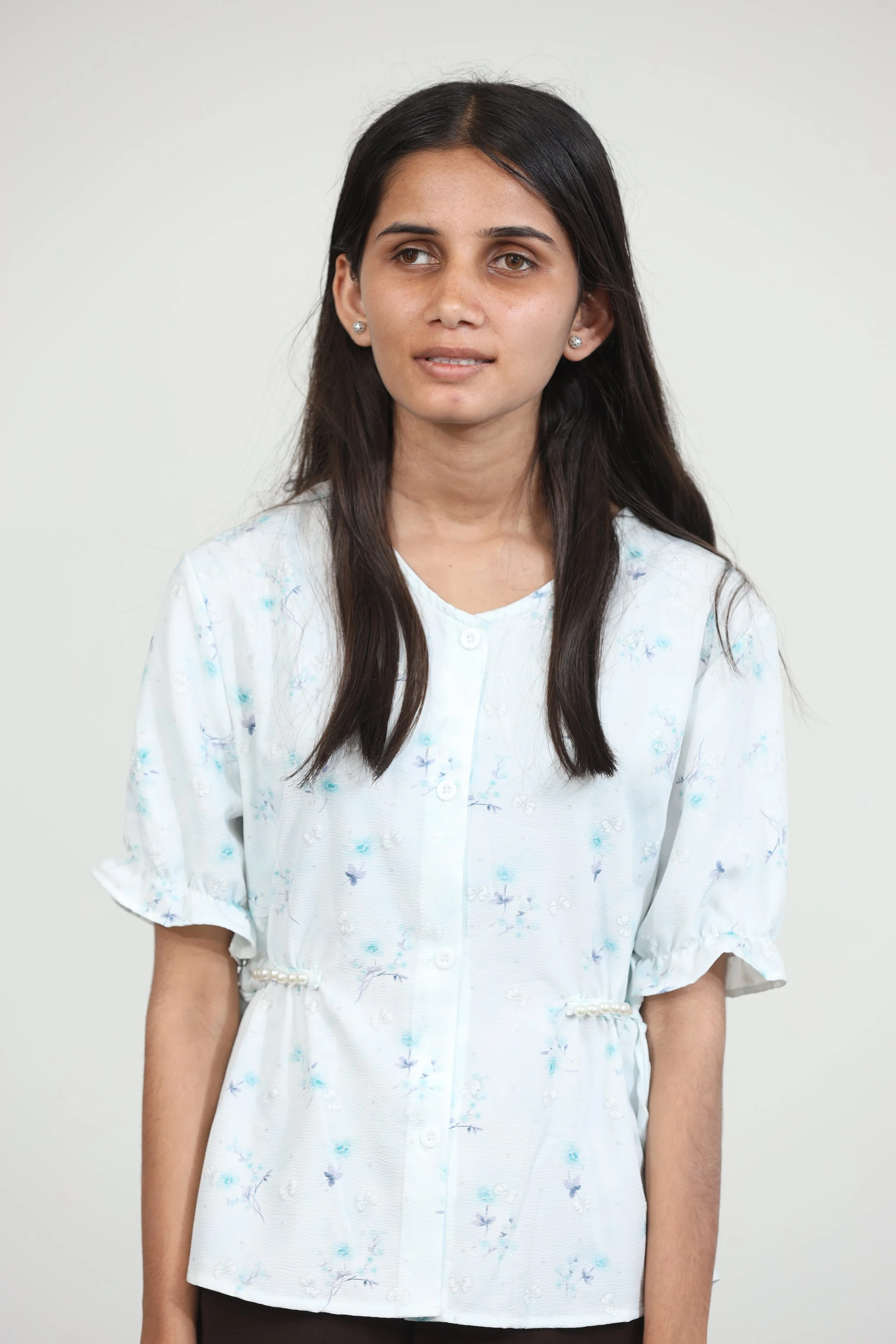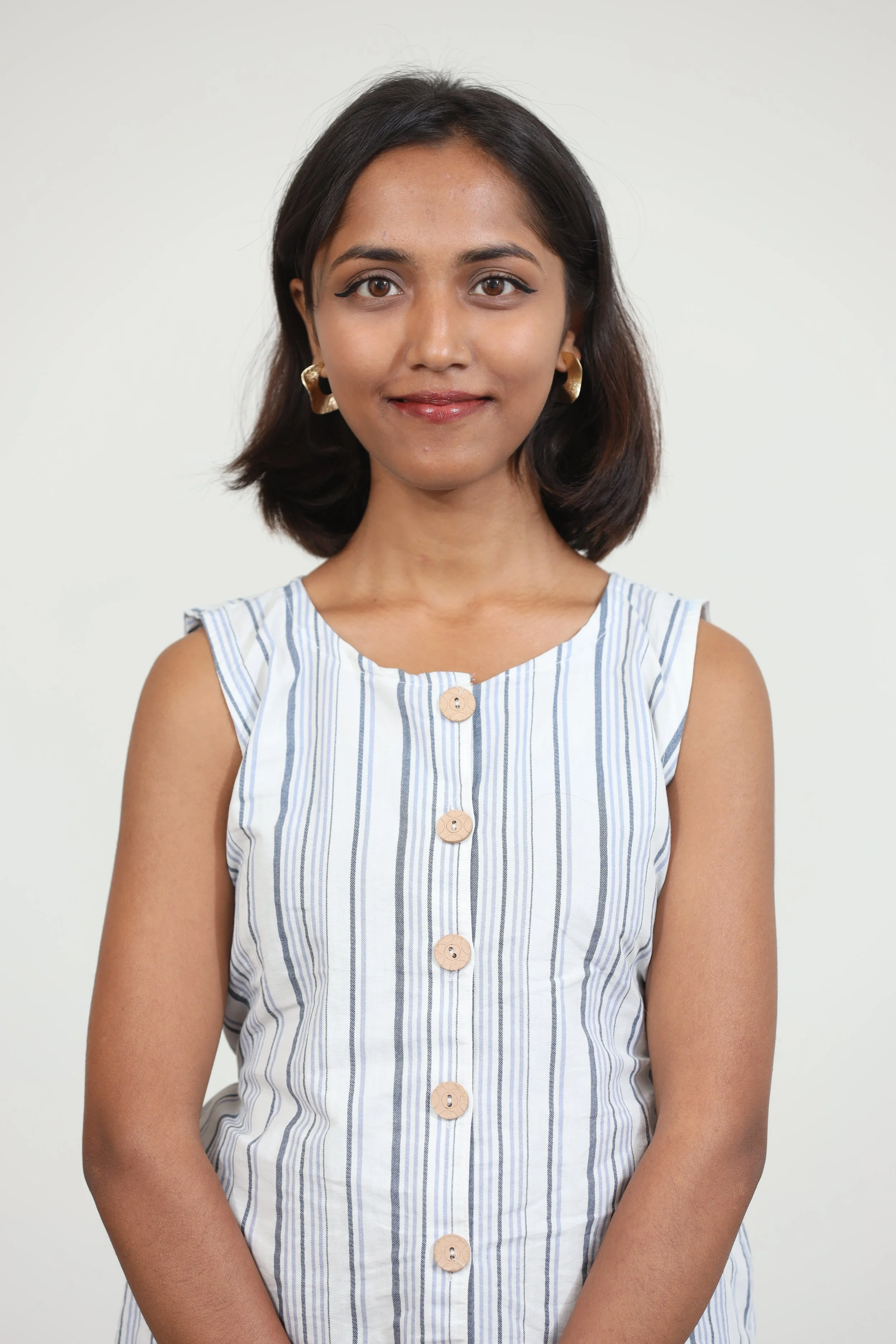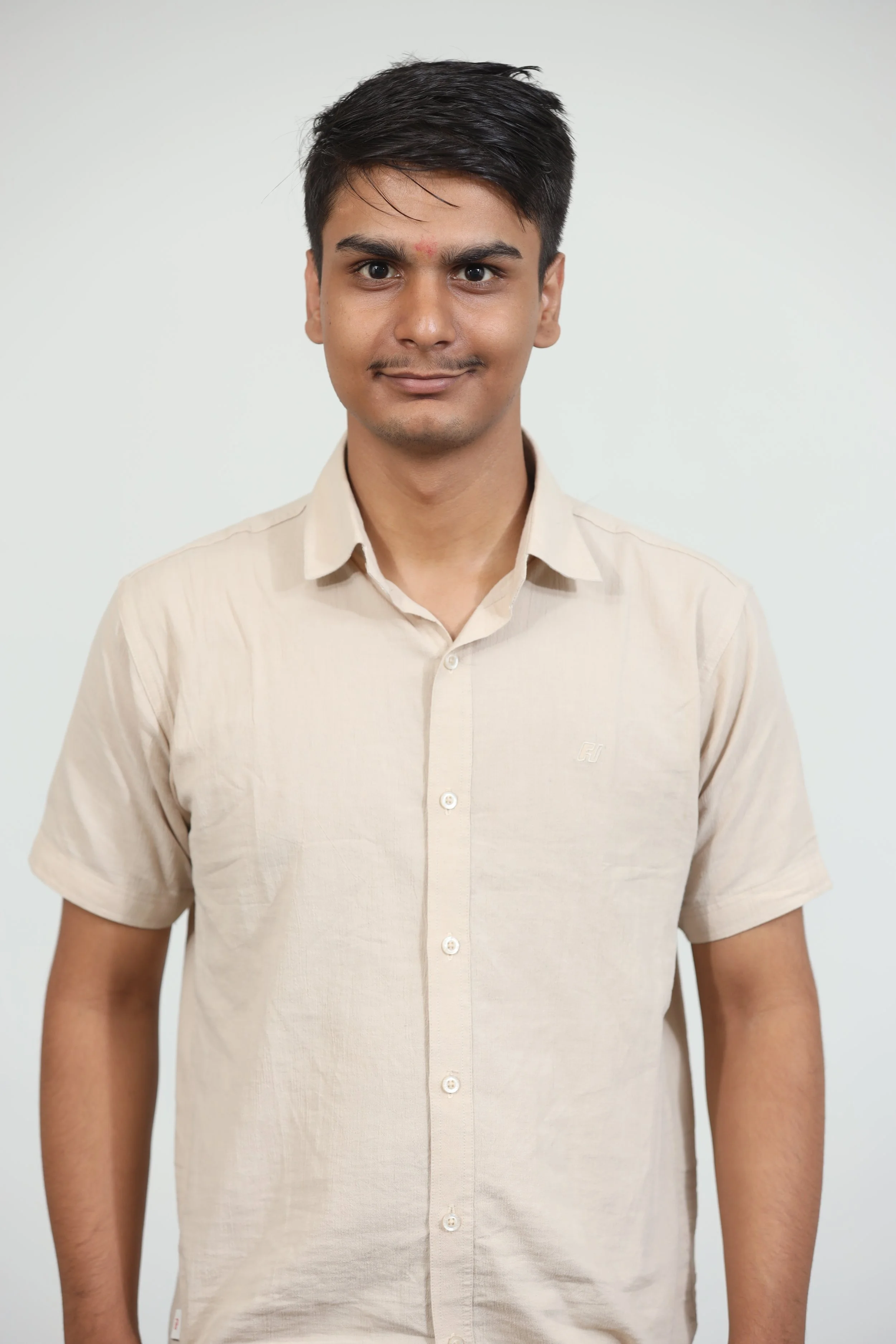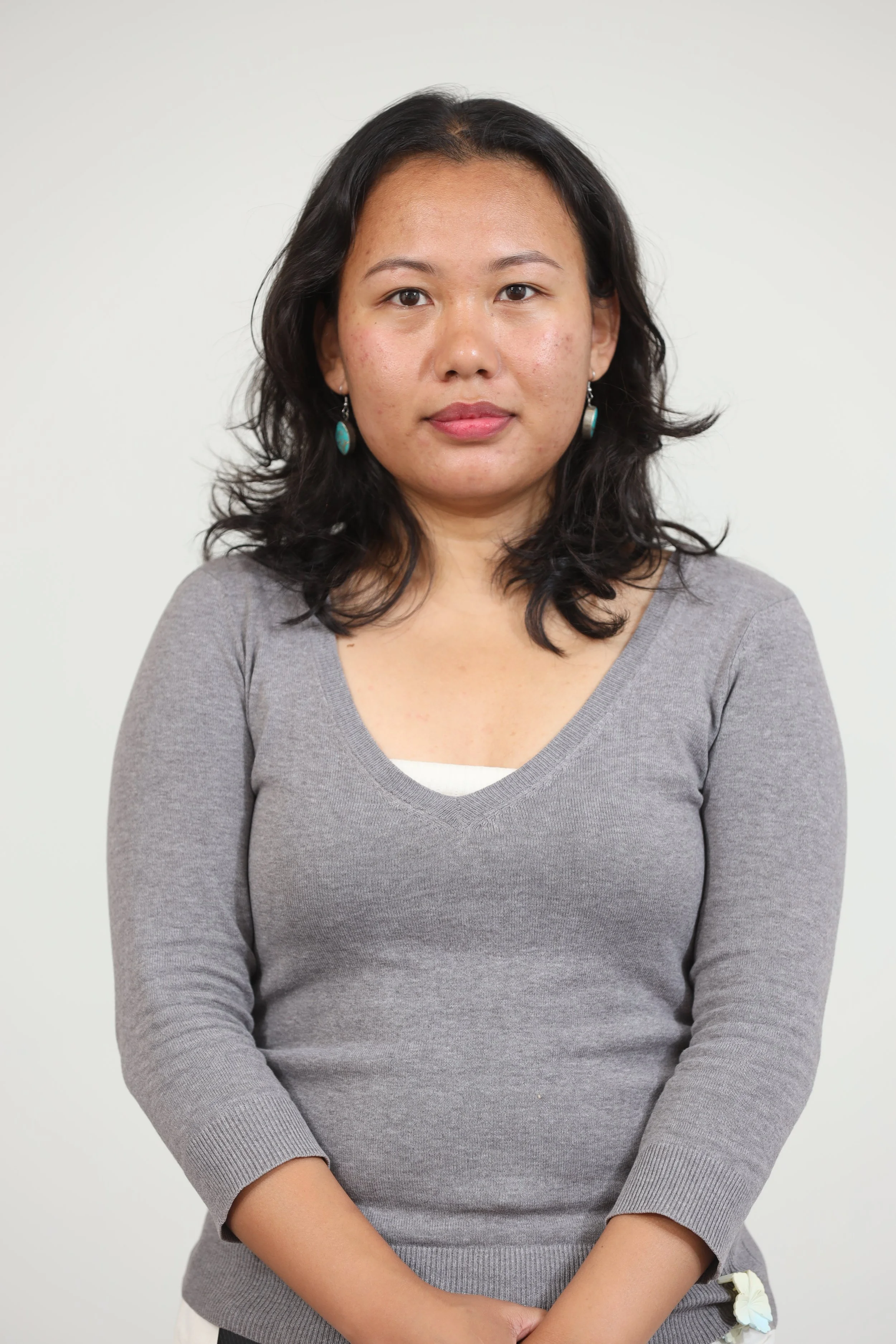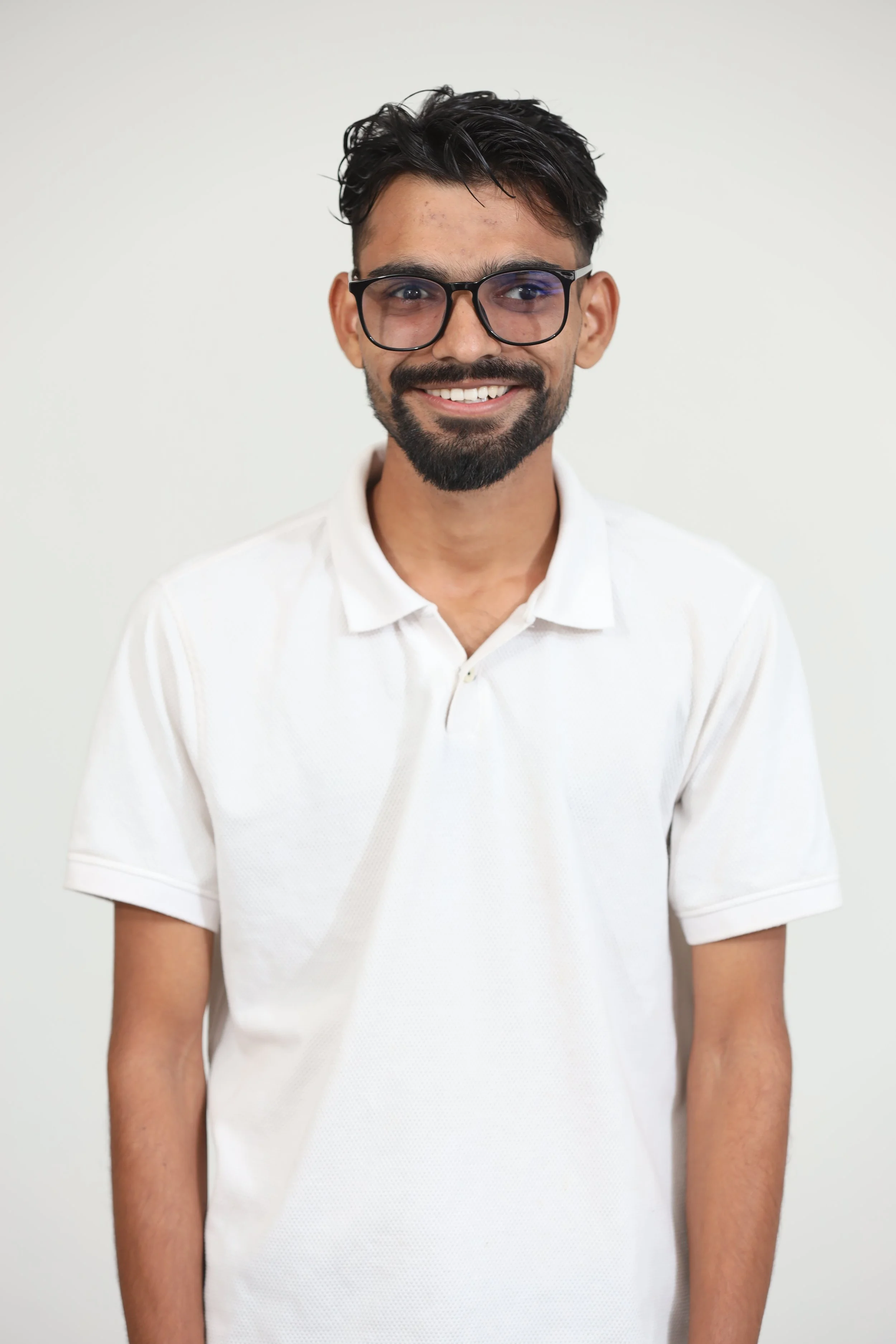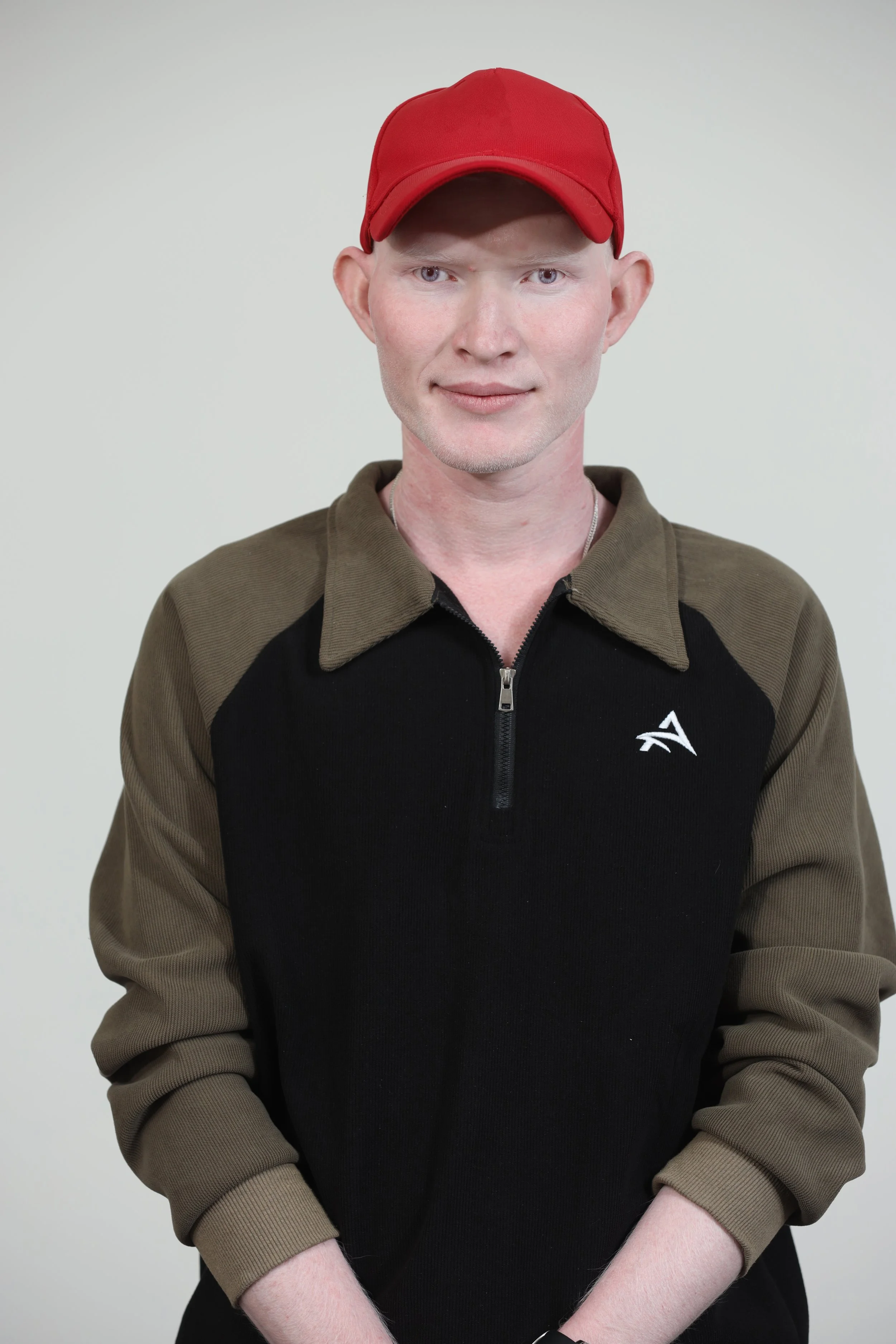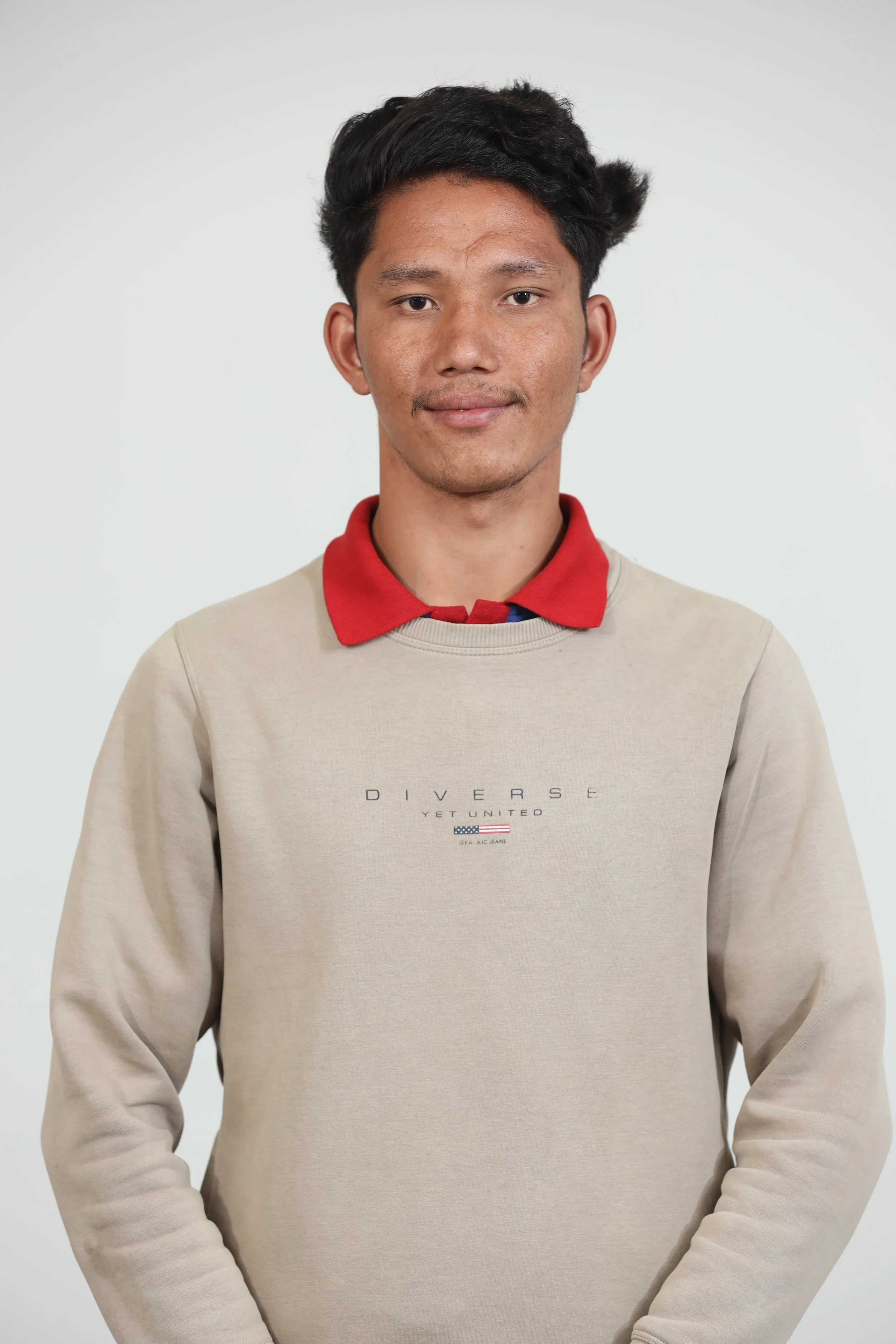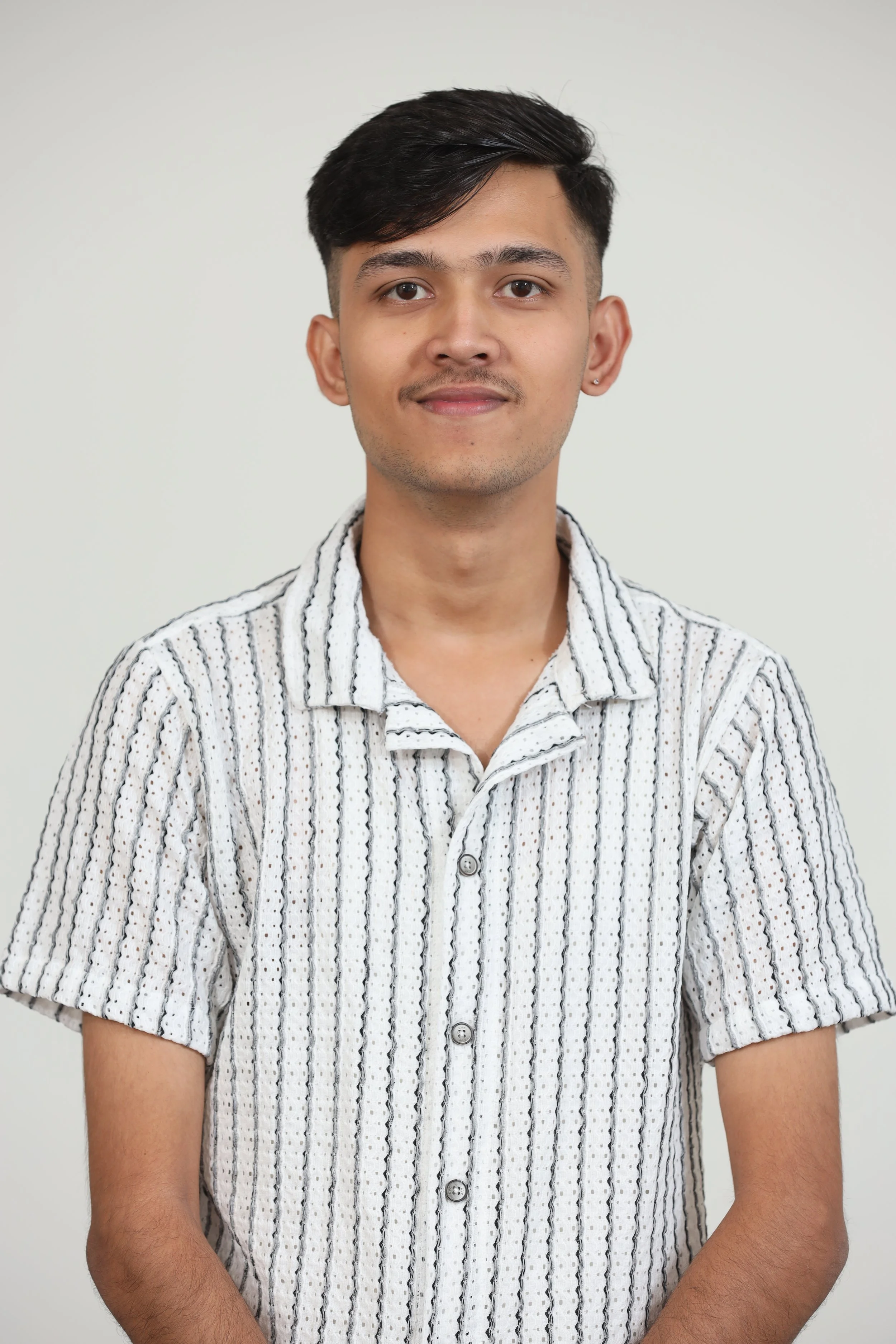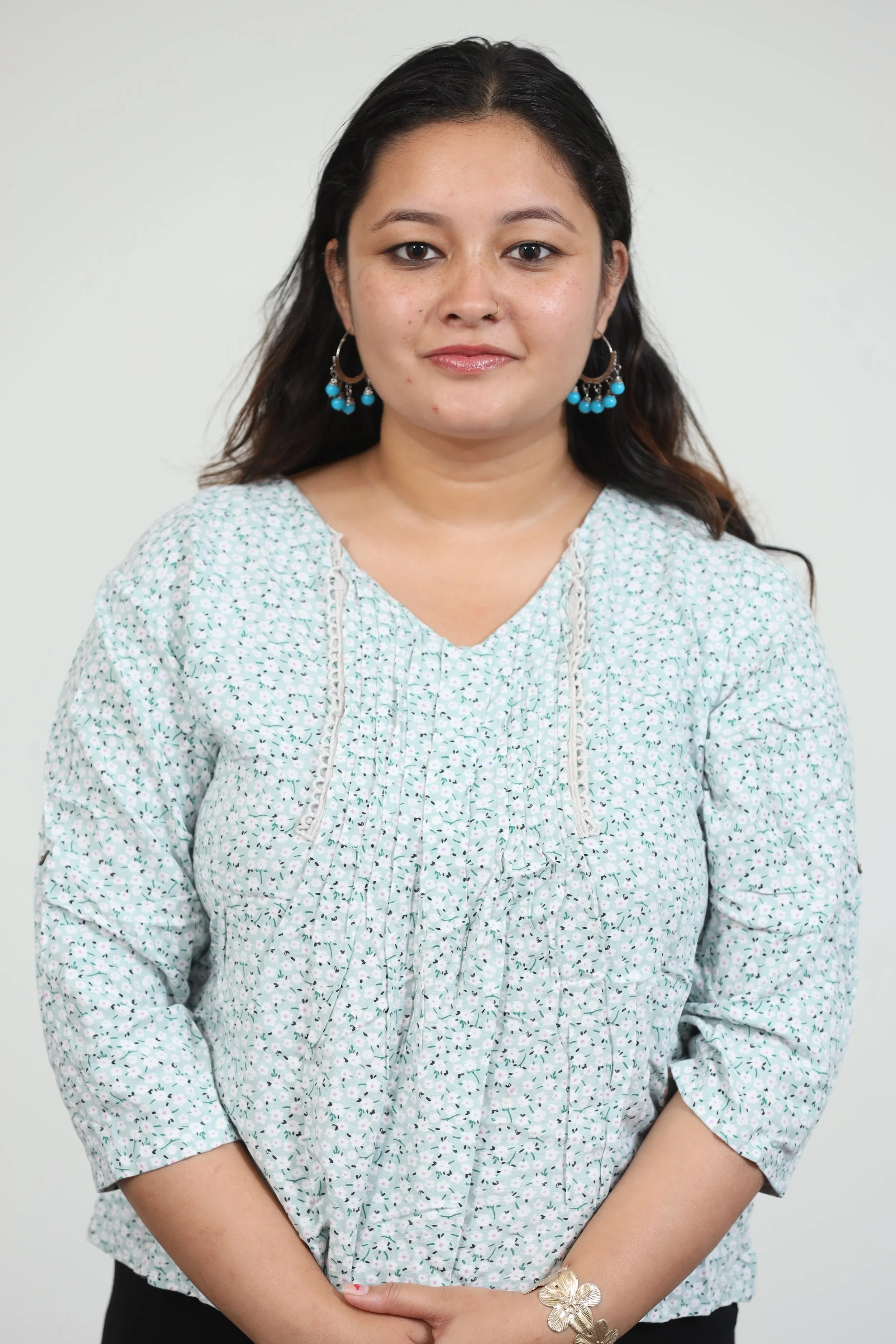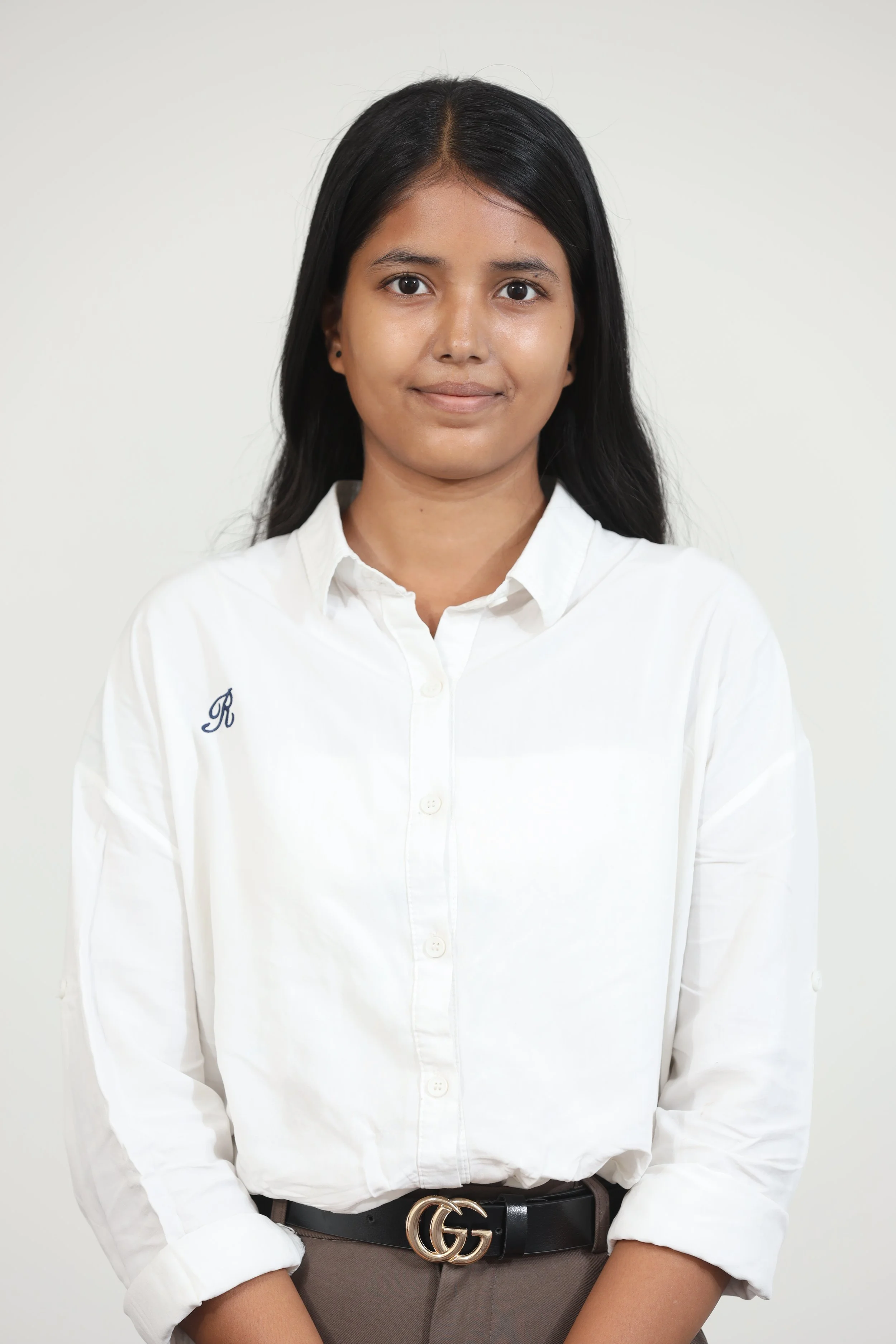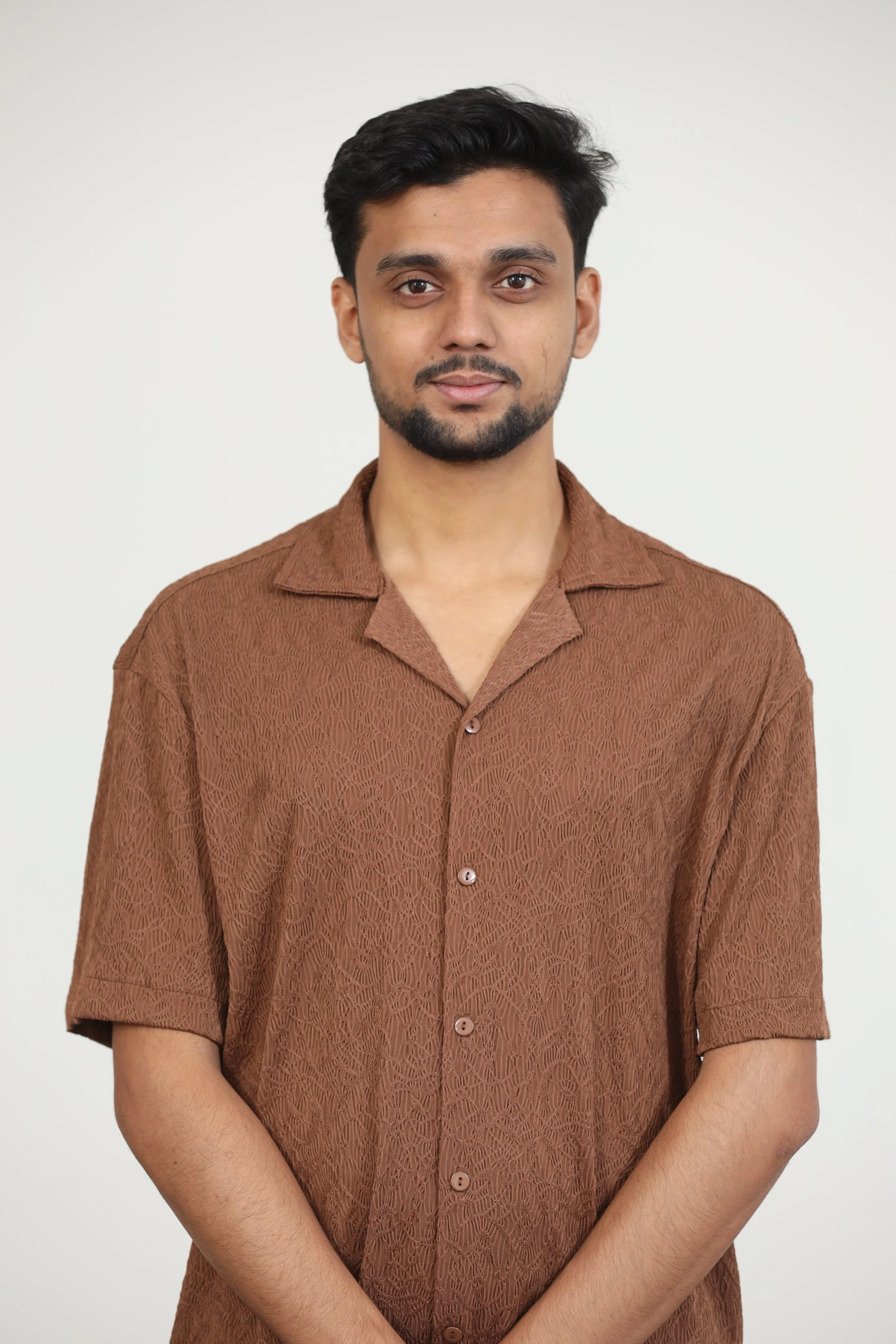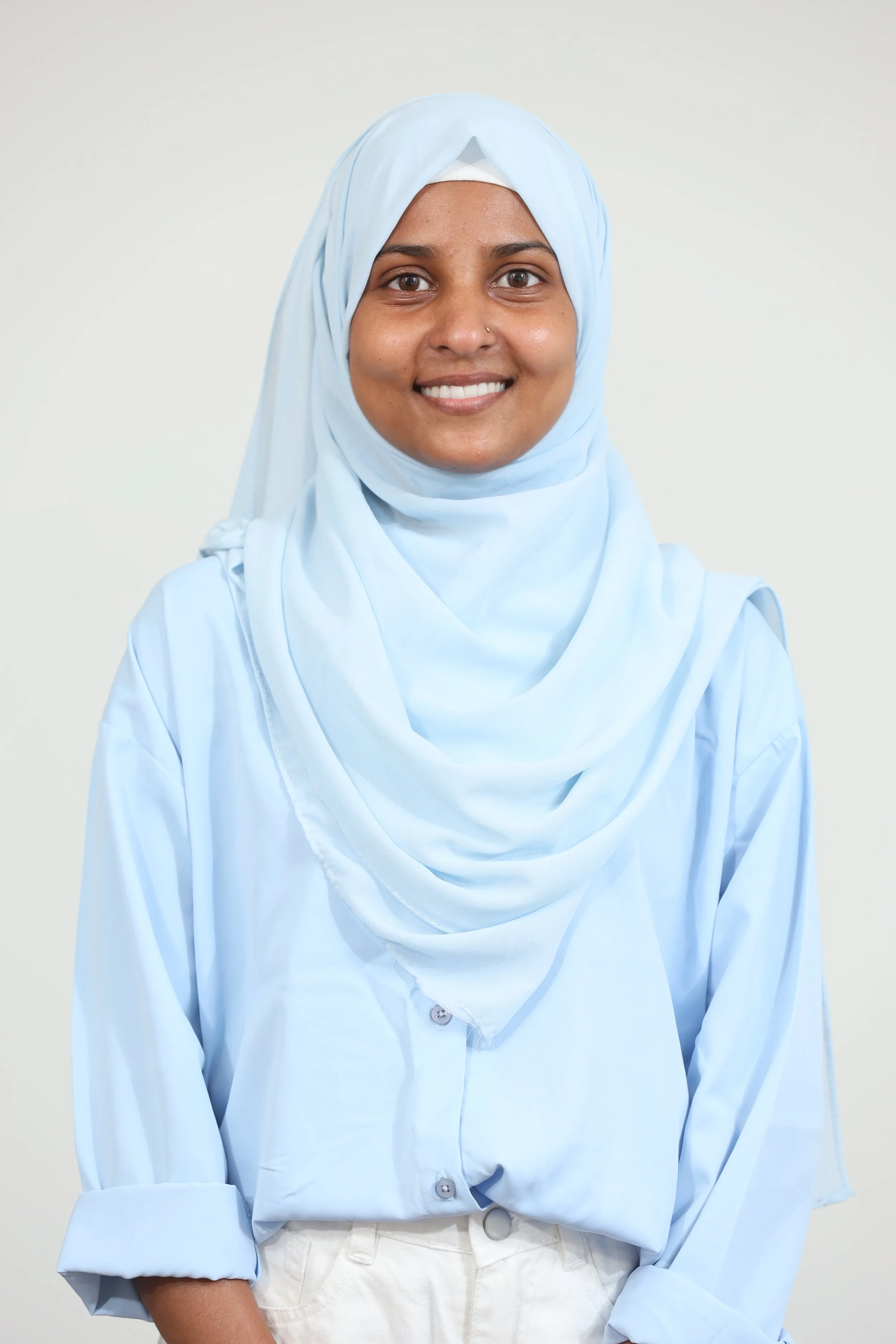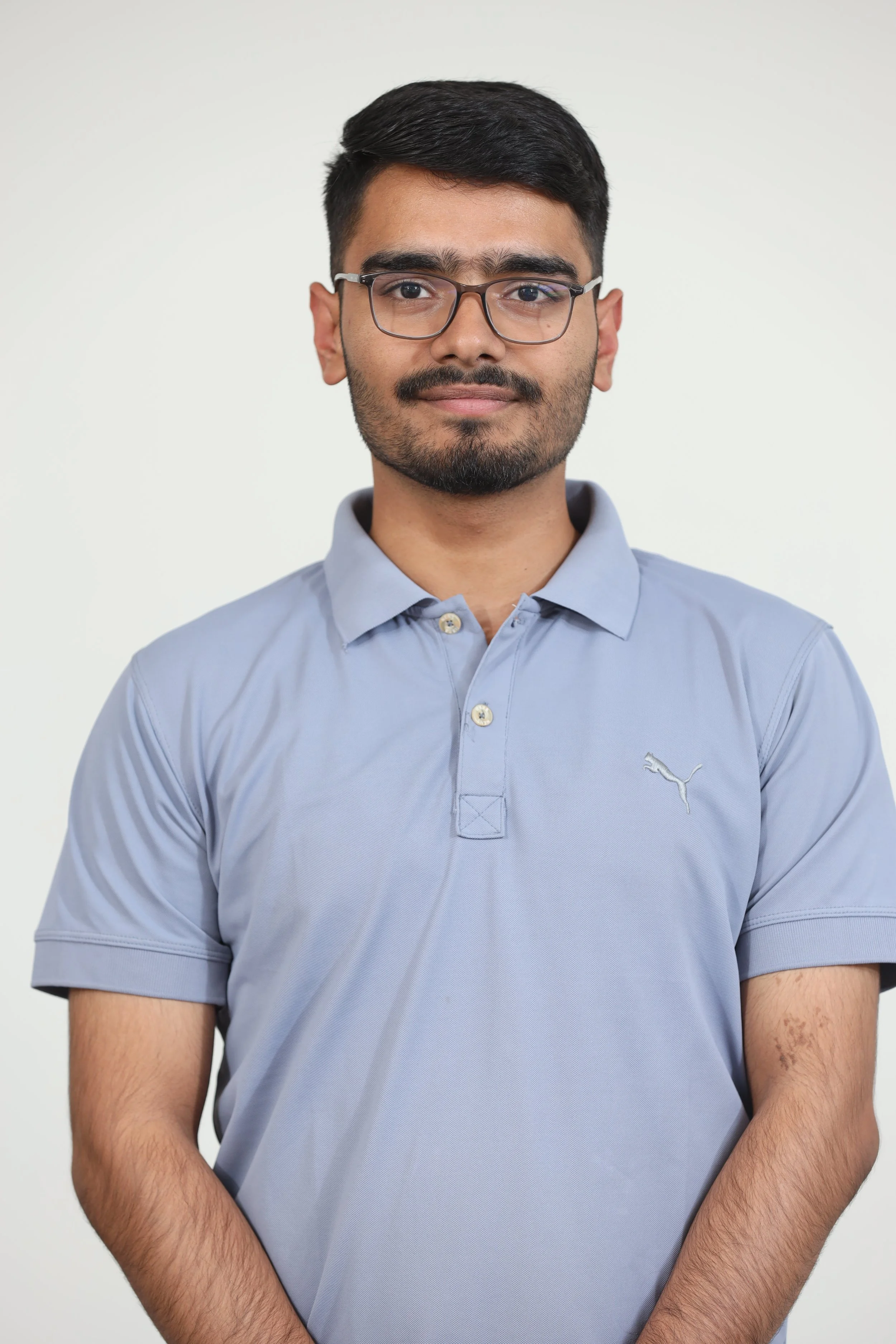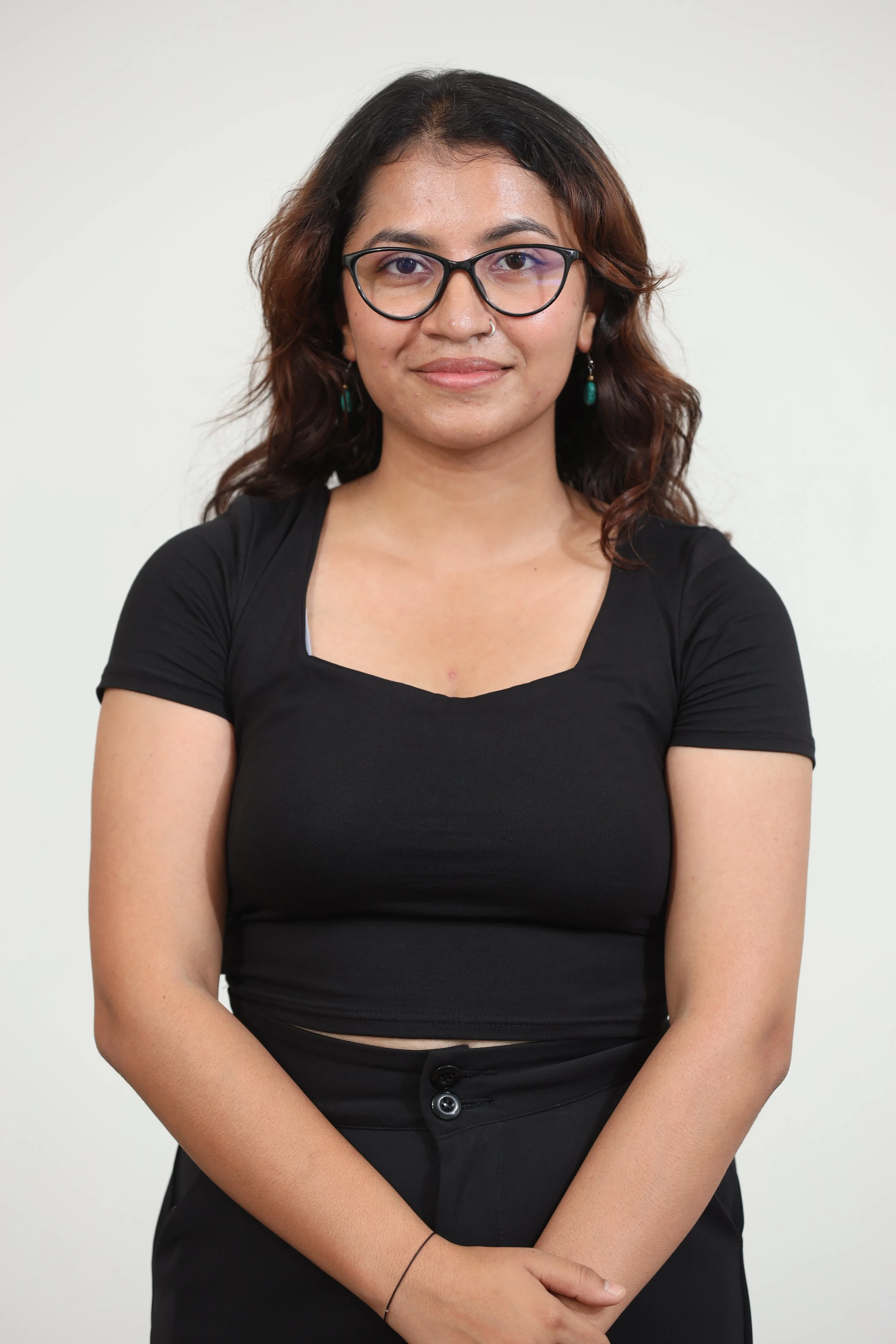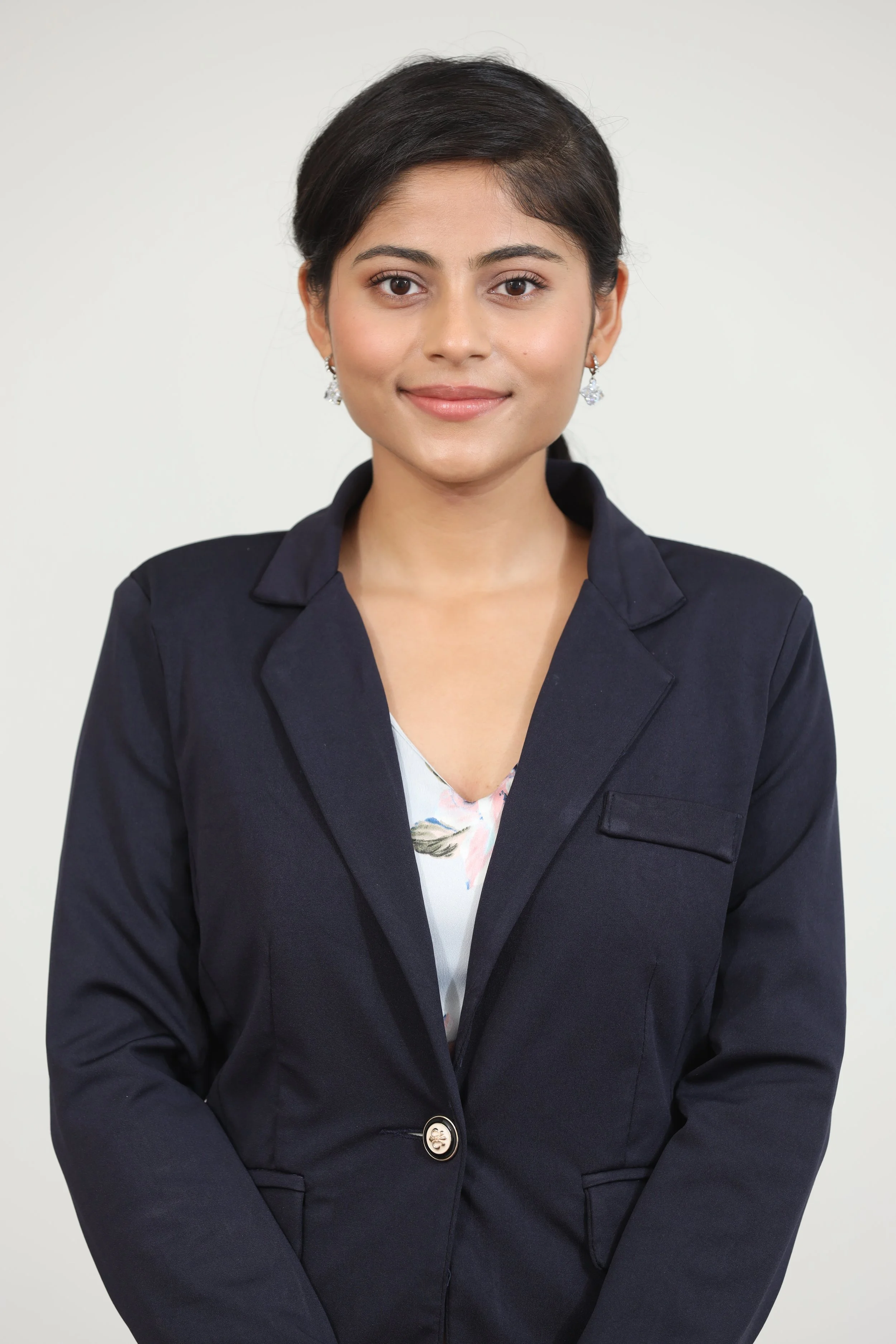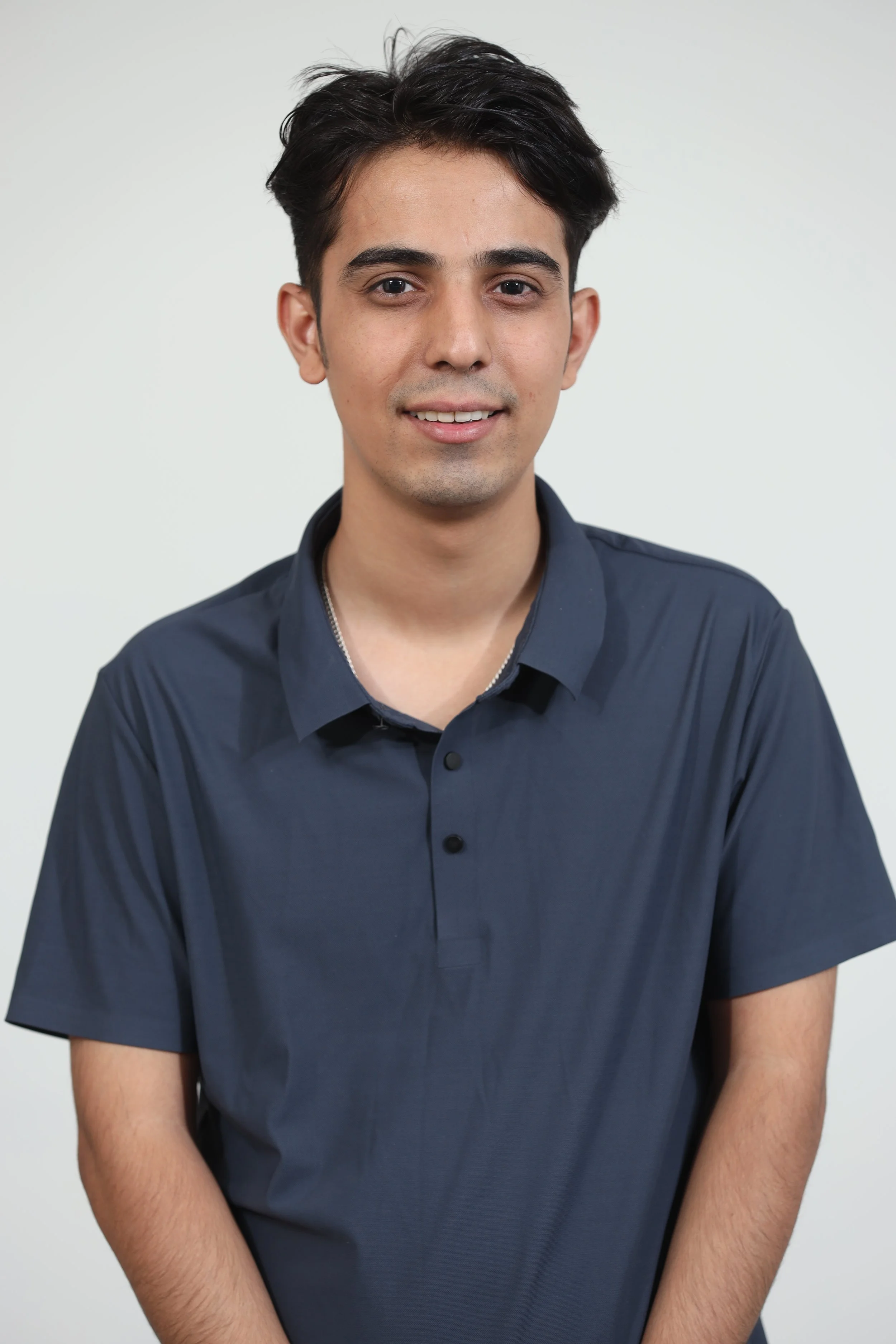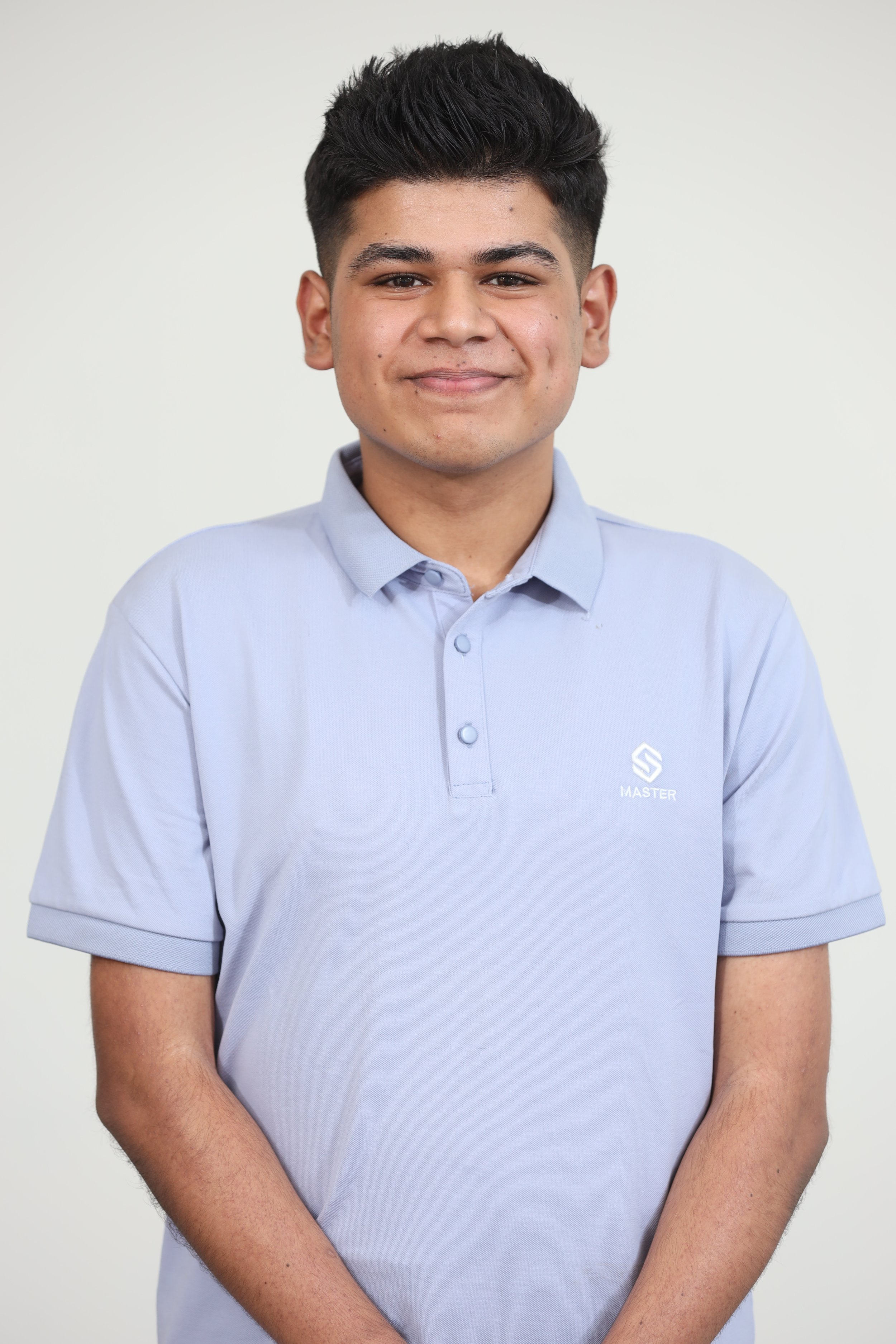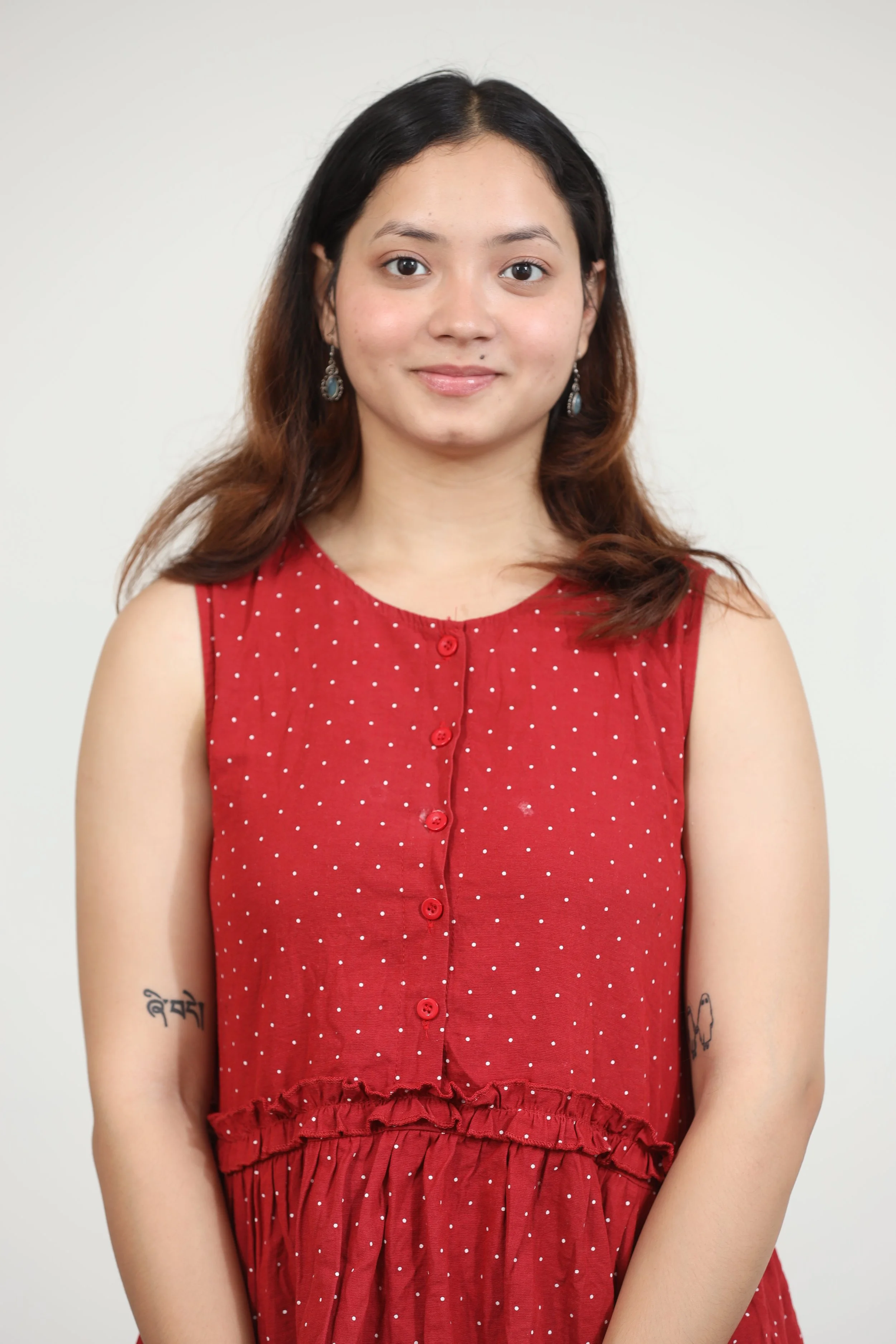MEMBERS |
2025
Aarti Kumari Raut
Aarti Kumari Raut, from Saptari District of Madhesh Province, With Bsc. Environmental Science background is a committed advocate for climate action and sustainability. she has been actively engaged in multiple volunteer initiatives and campaigns, with a strong focus on climate education and promotion of sustainable practices. Through her involvement with youth-led organizations such as Nepalese Youth for Climate Action (NYCA) and CliMates Nepal, she has contributed to programs and activities that empower young people and encourage environmental stewardship. Her key areas of focus include youth engagement, environmental education, and the promotion of inclusive, climate-resilient practices within communities across Nepal. As a member of the European Union Youth Sounding Board, Aarti is motivated by the opportunity to collaborate with passionate youth from diverse backgrounds, amplify the voices of young changemakers, and contribute meaningfully to sustainable development initiatives. With a clear vision for the future, she seeks to foster innovative solutions that strengthen climate resilience while inspiring communities to take collective action toward a more sustainable and equitable society.
Abdul Rajik Siddique
Rajik Siddique is a youth activist and social leader passionate about child rights, climate justice, and mobilizing young people to take meaningful roles in society. He currently mentors at Aakar Nepal and serves as the Country Ambassador for Youth Opportunities, connecting youth in Nepal with global opportunities and leadership networks.
His journey in activism has been shaped by his experience as a board member and provincial coordinator of National Adolescent Boy Nepal, which inspired him to expand his campaign for children’s rights and youth leadership. He has worked with various networks and grassroots movements, serving as the Rautahat District Ambassador for Rising Leader, Program Coordinator for Project Repurpose at Youth Activism Nepal, Outreach Coordinator at Anurodh Nepal, organizing committee member at Education Eco Equality (EEE), and a South Asian Climate Justice Fellow. Through these roles, he has led campaigns to end child marriage, conducted climate awareness programs, organized youth leadership camps, and promoted youth voices at the national policy level.
Driven by the belief that young people are not just future leaders but active change agents in the present, he envisions a Nepal where every young person has opportunities, resources, and competencies to thrive. As a YSB member, he aims to amplify youth voices and build intergenerational alliances for an equitable and sustainable future.
Abishek Baral
Abishek Baral is an Automobile Engineer with a strong interest in sustainable transportation. He is the co-founder of Fully Charged Nepal, an initiative working on EV battery reuse and e-waste management in collaboration with UNDP’s Green Job Creation Through Recycling and Upcycling (GCRU) project in Pokhara. He also serves as a part-time lecturer at IOE Paschimanchal Campus, where he teaches Automobile Engineering students.
Previously, Abishek has contributed as a consultant to different e-mobility projects, focusing on EV policy development and capacity building. His work centers on promoting sustainable mobility, circular economy practices, and youth-led innovation in Nepal’s green transition.
Motivated by the belief that youth should be at the center of shaping solutions for climate and urban challenges, he hopes to use the YSB platform to bring forward local experiences, amplify youth voices, and advocate for inclusive and sustainable policies.
Asmita Devkota
Asmita Devkota is a youth advocate currently pursuing a bachelor's degree in psychology and political science at Tribhuvan University. Her areas of interest include politics, law, justice, and disability rights, and she is deeply committed to advancing inclusive policies and equitable opportunities for all.
She serves as a member of the European Union in Nepal’s Youth Sounding Board (2025/26 cohort), where she contributes to shaping policies and amplifying the perspectives of diverse youth. She has also completed the Young Women Political Leadership Course (YWPLC), which strengthened her leadership, advocacy, and political engagement skills. In addition, she is recognized as a Climate Justice Champion, working to link climate action with social inclusion and youth empowerment.
Guided by the belief that every young person’s voice matters, she is passionate about creating accessible, equitable, and inclusive spaces. Through her work, she strives to inspire and empower youth to actively participate, lead, and drive transformative change in society.
Asmita Shah
Asmita Shah identifies herself as an intersectional Madheshi feminist. She recently completed her undergraduate degree in Economics. Her academic and advocacy interests lie at the intersection of public policy and youth engagement with democratic governance. She has co-founded Political Literacy for Women (PLFW), worked with organizations such as Women LEAD Nepal and National Policy Forum.
With a vision of inclusive and accountable governance, she aspires to use her role as a YSB member to diverse voices and drive impactful, youth-led change.
Aavash Subedi
Aavash Subedi is a young scientist, activist, and campaigner from Birendranagar, Surkhet. After being denied exam accommodations during a documented medical crisis, he began uncovering structural deficiencies in Nepal’s examination system. He spearheaded a nationwide campaign to institutionalize the Special Consideration Policy (exam accommodations for students facing verified emergencies). Following 1.5 years of research-based advocacy, Nepal became South Asia’s first country to adopt such a policy, safeguarding more than 700,000 students annually.
Realizing this was a global issue affecting hundreds of millions, Aavash founded the Global Coalition for Special Consideration (GCSC) to expand policy reform worldwide. The GCSC has reached 32 countries, protecting nearly 102 million students’ academic and career opportunities.
Beyond GCSC, he leads the Diverse Ability Empowerment Foundation (DAEF), empowering 350+ people with disabilities, and has advanced lead poisoning awareness through published research and national campaigns reaching over 400,000 people, making it the largest lead poisoning awareness campaign in Nepal.
He collaborated with an MIT student to adapt Pogson’s equation for measuring light pollution, earning recognition as a global High School Inventor at the International Forum for Scientific Youth 2023–24 (Russia).
He also volunteers at American Corner Surkhet, currently serving as U.S. Studies Specialist, where he has led multiple U.S. Studies programs, supervised a library with 1.5k+ monthly visitors, and supported community events. Through Corner, he also conceived and organized the Surkhet Model UN—the first district-level Model UN in the province. He is also the Global Fellow for Academic Justice in the STAR Scholars Network.
He is super excited for the European Union's Youth Sounding Board's 4th cohort as it offers a rare space where young people’s lived experiences can inform policy and drive meaningful change. For him, it is an opportunity to learn from diverse peers, bring forward underrepresented voices from Nepal, and contribute evidence-based perspectives to the EU’s participatory approach. He hopes to bring humility, collaboration, and lived experience to the cohort, while equally growing through the wisdom of others.
Babita Tamang
Babita Tamang is the co-founder of Biruwa, a youth-led initiative that began with a simple yet powerful idea that small, everyday actions can spark bigger conversations about climate justice and environmental rights. Through Biruwa, she brings young people together to explore how climate change is not only about melting glaciers or rising temperatures, but also about culture, identity, and the survival of indigenous voices that hold generations of wisdom.
Her journey has been shaped by active engagement in youth advocacy spaces — from designing programs at CAPCRON to participating in the Youth in Policy Bootcamp, where she collaborated with peers and policymakers on inclusive approaches to governance. She has also served as a panelist, facilitator, and Model UN chair, experiences that strengthened her leadership and reinforced her commitment to collaboration and shared learning.
Motivated by the belief that youth are not just the future but also the present, Babita advocates for a form of climate justice that is deeply rooted in equity and cultural recognition. As a YSB member, she aims to amplify indigenous perspectives in climate policies, ensuring that the people most connected to land and nature are central to shaping sustainable solutions.
Bijaya Raj Joshi
Bijaya Raj Joshi is a dedicated human rights defender and youth leader from Sudurpaschim, Nepal. He is currently pursuing a Bachelor’s degree in Agriculture at the College of Natural Resource Management, Tikapur (CNRM Tikapur), under Agriculture and Forestry University (AFU). Since 2016, he has been actively engaged in child rights and protection, gradually expanding his advocacy to broader issues such as civic space, mental health, online safety, gender equality, ending gender-based violence (GBV), climate change, and Sexual and Reproductive Health and Rights (SRHR).
With more than nine years of experience, Bijaya has played leading roles in both local and national platforms. He served as the Founder President of the National Adolescent Boys’ Network Nepal (NABN Nepal), where he spearheaded national advocacy on advancing SRHR, child rights, gender equality, and ending GBV. In this tenure, he mobilized adolescents across Nepal, engaged with policymakers, and contributed to initiatives aimed on participation of male for ending gender based violence and ensuring gender equality.
At the local level, Bijaya is the Founder President of the Panchodaya Child Club Dhnagadhi and Nagar Baal Sanjal Dhangadhi, pioneering grassroots participation and amplifying children voices. He has also worked closely with the Government of Nepal and civil society organizations, including the National Child Rights Council.
Motivated by a vision of inclusivity, Bijaya struggles to create a society where young people are empowered to influence decisions and contribute meaningfully to sustainable development.
Bikash Sunar
Bikash is from Khadachakra Municipality of Kalikot district in Karnali Province, Nepal. Growing up with albinism, he transformed personal experiences into a driving force for advocacy, inclusion, and leadership. From an early age, he developed a passion for social work, music, and community engagement, believing in the power of education and creativity to inspire social transformation.
His commitment to social change deepened through youth clubs, volunteer programs, and grassroots campaigns. As a teacher and school social work practitioner, he supported children with diverse needs and fostered inclusive learning environments. Through internships with Sustainable Wash for All (SUSWA), the Surkhet Association of the Blind, and volunteering with Manav Sewa Ashram, he gained practical expertise in community development, disability advocacy, and participatory approaches.
Bikash’s leadership has been strengthened through his engagement with disability rights movements. He is an active member of the Dalit with Disability Association Nepal (DDAN) and the National Disabled Albino Nepal, where he contributes to advancing equality, inclusion, and empowerment. He envisions a society where young people lead positive change, and he is committed to ampl
Dipak Budhathoki
Dipak Budhathoki, Program Coordinator of the Karnali Society of International Law (KARNALISIL), is a dedicated law student from Humla, with a strong commitment to human rights, international law, and youth empowerment. His work centers on bridging the gap between legal frameworks and societal progress through research, advocacy, and policy engagement.
With a particular interest in the emerging field of international law, he envisions progressive legal systems that address both contemporary challenges and the future of international legal community. Driven by a passion for justice and innovation, Dipak is committed to shaping laws that safeguard human rights and promote inclusive development on Earth and beyond.
Kanak Panthi
Kanak is a young public health worker passionate about working at the intersection of LGBTQIA+ rights and health advocacy. Kanak has been working at Blue Diamond Society, Nepal since 2022 for various research interventions and program implementations in the field of LGBTQIA+ health in issues ranging from mental health, HIV/STIs, harm reduction and SRHR. They are also actively advocating in human rights issues of the Queer community like legal gender recognition, marriage equality and comprehensive sexuality education. As a YSB member, Kanak hopes to contribute to the meaningful participation of young people in Nepal through this initiation from EU.
Nischal Raj Gautam
Nischal Raj Gautam is a B.Sc. Agriculture student at Agriculture and Forestry University, deeply engaged in connecting youth leadership with climate action and sustainable agriculture. Alongside his academic journey, he serves as the Vice President of Nawasarjak Sahitya Chautari, a nationwide literary organization and actively volunteers with NYCA-Chitwan, YASEN and Amnesty International Nepal. He also teaches biology and entrance preparation at TRL Education Institute, where he mentors hundreds of students from diverse socio-economic backgrounds including those from underprivileged regions.
His focus areas include climate-smart agriculture, food security, youth empowerment and human rights education. He has been recognized as a Resilient Youth Network Fellow and South Asian Climate Justice Fellow. He has also represented youth globally as a Youth Representative at the World Food Forum, Plastic NextGen Fellow, Research Fellow at The Green Institute and HPAIR V-Conference delegate.
Growing up in a remote village shaped his determination to create opportunities for others and to bridge gaps in access to education, climate awareness and sustainable farming. As a member of the Youth Sounding Board (4th Cohort), he envisions amplifying grassroots perspectives and fostering inclusive youth-driven policy solutions.
Pragya Karki
Pragya Karki is a passionate development practitioner whose work lies at the intersection of education, youth empowerment, food security, climate action, and digital inclusion. She believes these issues are deeply interconnected and has integrated them with education to enable youth to become agents of change in their communities.
Through initiatives with local government, youth-led organizations, CSOs, NGOs, and INGOs, she has reached over 3,000 students by facilitating and organizing sessions, mentoring facilitators, and developing child-friendly curricula. Working as a facilitator, campaign lead, and project lead, she has fostered leadership, character development, critical thinking, hands-on learning, and equitable access to education.
As Campaign Lead of FutureFeed Nepal, she mobilized 15,000 people to address climate-induced food insecurity, sensitized communities, mentored eco-club leaders, and contributed to the development of green schools that integrate sustainable practices into education. At the regional level, she has contributed to advancing digital inclusion by co-facilitating stakeholder consultations across Southeast Asia, contributing to efforts to bridge gaps in access, equity, and opportunity.
With expertise in project management, stakeholder engagement, and facilitation, alongside her passion for poetry, Pragya aspires to combine her interests in education, digital inclusion, GEDSI, and public policy to uplift grassroots communities while engaging in local, national, and global development arena.
Pooja Sonar
Pooja Sonar is a law student pursuing a BALLB degree at Far-western University Central Campus, with a strong interest in human rights, judicial reform, and international law. Her areas of expertise include gender equality and social inclusion, youth participation in governance, and the evolving field of cyber law.
She has consistently demonstrated excellence in research, public speaking, and academic activities, and has represented her university in national moot court competitions. Beyond academia, she has actively engaged in advocacy and public speaking, raising awareness on issues of equality and access to justice.
As a law student, she is deeply aware of the ground realities faced by minorities in Sudurpaschim. Her involvement in UNDP’s Enhancing Access to Justice through Institutional Reform Program exposed her to the daily challenges faced by marginalized communities, which further strengthened her ambition to ensure that every citizen of Nepal can fully enjoy their rights.
This ambition led her to join the fourth cohort of the European Union’s Youth Sounding Board. As a member of YSB 2025, she aims to amplify youth voices and co-create inclusive, rights-based solutions that reflect the needs of her community and beyond.
Prastut Bhattarai
Prastut Bhattarai is a graduate in Computational Mathematics from Kathmandu University, Nepal, passionate about technology, youth empowerment, and social impact. He is currently engaged in artificial intelligence and data science, with experience developing AI models for environmental data, medical imaging, and traffic systems.
At university, he contributed to the Computational Mathematics Club, leading programs that showcased how mathematics drives innovation in fields such as climate research and AI. As Charter Vice President of the Leo Club of Kathmandu Nepalaya, he organized initiatives like a teaching program for young learners with limited access to education, strengthening his commitment to inclusive education.
He is also an active member of the Google Developer Group Kathmandu, where he helps create spaces for collaboration between students, professionals, and innovators. As a Youth Sounding Board member, Prastut is motivated by the belief that youth perspectives can shape policies and build more inclusive, human-centered digital futures in Nepal.
Rahimat Jaha Khan
Rahimat Jaha Khan is currently pursuing a Bachelor’s in Public Health at the Central Department of Public Health, IOM. She is passionate about continuous learning, collaborating with organizations, and creating positive social change through public health initiatives. Her goal is to contribute meaningfully to society while growing both personally and professionally.
Her leadership journey began at the local level, where she served as President of the Child Club Network in Khajura Rural Municipality and President of the Adolescent Girls Network in her community. She later took on national roles as Secretary of the Banke District Child Club Network, Vice Secretary of the National Adolescent Girls Network, and Advisor to the Lumbini Province Adolescent Girls Network. In 2024, she proudly served as the Speaker of the House in the Mock Youth Parliament of Lumbini Province.
Rahimat continues her advocacy through multiple platforms — as a Peer Educator with CWIN Nepal on SRHR, Sarathi of Visible Impact, Youth Ambassador of Plan International Nepal, Ambassador of U Go Nepal, and as the 2021 Loudest Girl of Girls Out Nepal.
As a YSB member, she is driven to empower adolescent girls, challenge societal barriers, and inspire others to believe in their power to lead change.
Renu Ghimire
Renu Ghimire is an Artivist from Dang, currently working with Freedom Studio, a pro-democracy movement-building organization. She uses art, new media, and technology to challenge social injustices and amplify grassroots movements. Her work lies at the intersection of peacebuilding and climate justice, with a strong focus on creating safe and supportive spaces that prioritize the wellbeing of activists. Renu has led creative campaigns and Artivism Labs that connect culture with civic action, and she continues to collaborate with communities to highlight resilience and shared struggles. As part of the EU-YSB, she envisions learning, unlearning, and relearning to build a shared vision for inclusive change.
Ritendra Badu
Ritendra, 24, currently serves as Public Health Officer in Health Office Baitadi, Sudurpashchim province, Nepal. In his everyday role, he looks for practical and innovative ways to strengthen health services, making sure they actually meet the needs of people in his community.
Having completed his Bachelor’s degree in Public Health from Institute of Medicine (IOM), he has since been involved with youth-led initiatives and organizations. During his time as Treasurer of YUWA, a youth-led and youth-run organization, Ritendra worked alongside young people on issues like leadership, governance, Sexual and Reproductive Health and Rights (SRHR) and more. He also has experience of leading different youth groups as a program lead working on diverse thematic areas like nutrition, climate change, etc. These experiences have not only sharpened his skills but also made him strongly believe that young people are indispensable agents of change at all levels. “YOUth can do it!” is what he believes!
Currently a member of the Youth Sounding Board in Nepal, Ritendra is motivated by a vision of a healthier and more inclusive society. He is passionate about bringing forward the voices of young people from rural and often overlooked areas, ensuring they have a say in shaping policies and setting development priorities by being at the core.
Samjhana Nepali
Samjhana is a daughter born into an ordinary family in Mugu district, one of the most remote areas of Nepal. While studying at the local government school, she received a scholarship from United Mission to Nepal (UMN) from Grade 9 onwards and continued her education, completing a Bachelor’s degree in Education while staying in her birthplace. She is currently living in Kirtipur and pursuing a Master’s degree in Anthropology at Tribhuvan University.
Her journey to this point was certainly not easy. Despite facing numerous obstacles, barriers, and hardships, she has strived forward without ever feeling weak. When she was in Grade 11, she began working both out of responsibility and with the goal of learning. As an artist with Karnali Theatre in Mugu, she contributed for seven years to society by raising her voice and spreading awareness on social issues through plays, with the aim of reducing harmful practices and superstitions in different districts of Karnali.
Alongside this, she collaborated with the University of Toronto in Canada for two years, studying and researching development, infrastructure prosperity, and democracy, while actively writing and publishing articles. In this way, through her involvement with various social organizations, she has gained experience, worked on her weaknesses, and honed her skills. At present, she is working with the Photo Circle organization in Kathmandu, taking responsibility for research, writing commentaries, and coordinating programs.
She adds that the Youth European Sounding Board, which brings together young people from across Nepal to advance youth leadership and policy-making collectively, has greatly motivated her.
Sneha Bhatta
Sneha Bhatta is an undergraduate final-year student and a passionate public health professional with over three years of experience in program design, implementation, and advocacy. Currently serving as Program Coordinator at Brahmasthani Awareness Society, she leads initiatives improving healthcare access for people with disabilities and strengthening community health systems.
Originally from Baitadi, Sneha has collaborated with leading organizations including UNFPA, Rutgers International, YUWA and She’s the First, driving impactful projects on Comprehensive Sexuality Education (CSE), Sexual and Reproductive Health and Rights (SRHR). Recognized for her ability to translate research and advocacy into practical solutions, Sneha has led online learning platforms, youth-led campaigns, and grassroots interventions that champion inclusivity and amplify marginalized voices.
With strong skills in program management, research, and communications, she strives to bridge gaps in healthcare accessibility while advancing intersectional approaches to gender, disability, and public health.
Sneha Shrestha
Sneha Shrestha is the Co-founder of Avani and a Hult Prize Finalist 2023 at Melbourne Business School. She studied Computer Science and Information Technology at St. Xavier’s College and currently works at an Australian company, focusing on scaling businesses through technology. Until recently, she was actively working at the Office of the Prime Minister and Council of Ministers, Singha Durbar, where she engaged in youth-focused dialogues on entrepreneurship, technology, international relations, and foreign affairs with the Chief Advisors to the Prime Minister.
With a strong curiosity to understand Nepal’s systems, Sneha has explored various sectors during her undergraduate journey. She interned in Web Development at the Industrial Enterprise Development Institute (IEDI) under the Ministry of Industry, Commerce and Supplies, and participated in the University of Oxford’s Map the System program, where she researched the underrepresentation of women in STEM in Nepal’s higher education system.
Passionate about the intersection of entrepreneurship, technology, and sustainability, Sneha believes Nepal has untapped potential in renewable and clean energy. As a YSB member, she is motivated to use technology as a force for good and to create ripples of change with dedication in leadership, service and empowerment of youths.
Suman Gyawali
With a background spanning climate and gender justice, entrepreneurship, storytelling, marketing, and technology, Suman is a curious and impact-driven professional committed to solving problems through innovation, inclusion, and a futuristic mindset. He has served as Lead Researcher & Marketer at Project Kura and previously as an AI Analyst at Sway Sight, while also driving initiatives on gender justice, mental health, and social entrepreneurship. His leadership journey includes programs such as U.S. YSALI, Nabil SSE, Project SHIFT (Save the Children), and the Democracy House YLSI Fellowship. Suman’s education and training reflect a global outlook, with learning experiences through McKinsey, Google, Harvard University, LVMH, and Effective Altruism.
Suvam Bhatta
Suvam Bhatta is an advocate for disability rights, rare diseases, and inclusive policies in Nepal. He is a sociology student and an active member of the Rare Disease Society Nepal, where he contributes to advocacy and community support for people affected by rare conditions.
Suvam has engaged with more than 500 individuals with disabilities and rare diseases, building networks that amplify marginalized voices and connect lived experiences with policy dialogue. He has collaborated with organizations and effectively utilized social media to raise awareness, promote accessibility, and encourage youth engagement. His focus areas include disability rights, youth participation, climate change, and inclusive development.
Motivated by a vision of policy reform, equal opportunities, and global recognition of rare diseases, Suvam is committed to contributing meaningfully as a YSB member at both national and global levels.
Swastika Pradhan
Swastika Pradhan (she/her) is a lawyer based in Kathmandu. She holds a Bachelor’s degree in Business Management and Law from Kathmandu University School of Law. Currently, she is working on the Sustainable Electric Transport for Nepal (SET4NPL) project with GIZ, to advance policies that directly support greenhouse gas mitigation in Nepal’s public transport sector. She also serves as a Board Member of Women LEAD Nepal, supporting young women’s leadership and advocacy, and has advised civil society organizations on governance and compliance. Her broader interests span climate justice, women’s rights, and public policy. As a first-generation lawyer, she believes law and policy are powerful tools to address systemic inequalities.
Tasmina Chaudhary
Tasmina Chaudhary is currently working at UNESCO Nepal, where she supports the Communication and Information Unit in promoting media freedom, access to information, and inclusive digital transformation. Her work involves drafting press releases, creating social media content, documenting events, and contributing to research on press freedom and digital rights.
She holds a Bachelor’s degree in Development Studies from Kathmandu University, which strengthened her dedication to evidence-based policy development, youth participation, and inclusive development practices.
Tasmina’s academic and professional journey reflects her deep commitment to research and leadership. Through the Dr. Shyam Krishna Poudel Memorial Research Grant, she explored how residents of Surunga, Saptari, adapt to seasonal floods and build community climate resilience. Her participation in the Japan International Cooperation Agency (JICA) Youth Exchange Program further enriched her understanding of sustainable development and youth leadership through cross-cultural learning.
She has previously served as a Youth Program Officer at Amics del Nepal, leading environmental and youth empowerment programs, initiated the “Eco” climate change project through We for Change, and led digital storytelling and advocacy efforts with the Rotaract Club of Kathmandu Metro.
As a YSB member, Tasmina is driven by the belief that youth-led research, innovation, and collaboration can shape policies that advance justice, inclusivity, and resilient futures for all.


